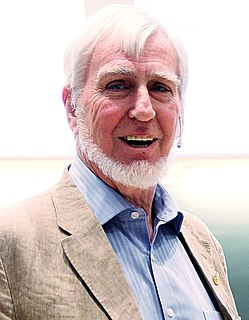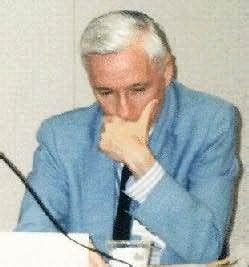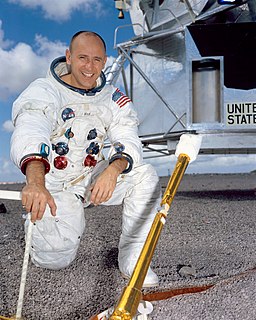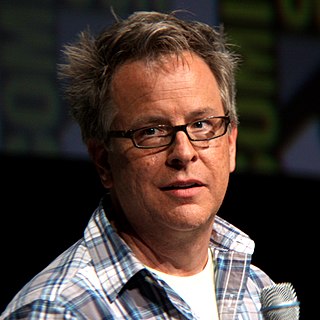A Quote by John O'Keefe
I can't say when we will have a cure, but we now know through our findings how to ask the question of what is going wrong at the earliest stage of Alzheimer's.
Related Quotes
It turns out that this part of the brain is one of the first areas that's attacked by Alzheimer's disease. So we can now use some of the basic understanding of this part of the brain to ask the simple question, 'What is going wrong with these special cells in the hippocampus at the very earliest stages?'
Do not ask the stones or the trees how to live, they can not tell you ; they do not have tongues; do not ask the wise man how to live for, if he knows , he will know he cannot tell you; if you would learn how to live , do not ask the question; its answer is not in the question but in the answer, which is not in words; do not ask how to live, but, instead, proceed to do so.
You know how they say that old people with Alzheimer's, they kind of go back, and they revert to the most emotional part of their life, what they did when they were younger... I think I am going to be cursed with reliving 'Star Wars: Episode IV - A New Hope' in my mind. And playing 'Dragon's Layer' when I enter Alzheimer's.
Because of my experience in Occupy, instead of asking the question, "Who will benefit from this system I'm implementing with the data?" I started to ask the question, "What will happen to the most vulnerable?" Or "Who is going to lose under this system? How will this affect the worst-off person?" Which is a very different question from "How does this improve certain people's lives?"
I can feel how an audience is reacting when I'm on a stage, but when you are on stage, your perception is distorted. That's something you just have to know. It's like pilots that fly at high Gs and they lose, sometimes, consciousness and hand/eye coordination and they just have to know that that's going to happen. They have to be trained to not try to do too much while they are doing that. So when you are on stage, you have to be aware that you are wrong about how it feels a lot of times.
The new culture war is about national identity rather than religion and 'transcendent authority.' It focuses on which groups the United States will formally admit to residence and citizenship. It asks the same question as the old culture war: 'Who are we?' But the earlier query was primarily about how we define ourselves morally. The new question is about how we define ourselves ethnically, racially and linguistically. It is, in truth, one of the oldest questions in our history, going back to our earliest immigration battles of the 1840s and 1850s.
When you go to a voice-based interaction, you can't tell people, 'Ask me this question and structure it in this way.' And if they ask a question, and you have a bad answer, first time, maybe they'll be okay with it. Third time, they're going to say, 'This is a complete waste of time. I'm going away.'




































